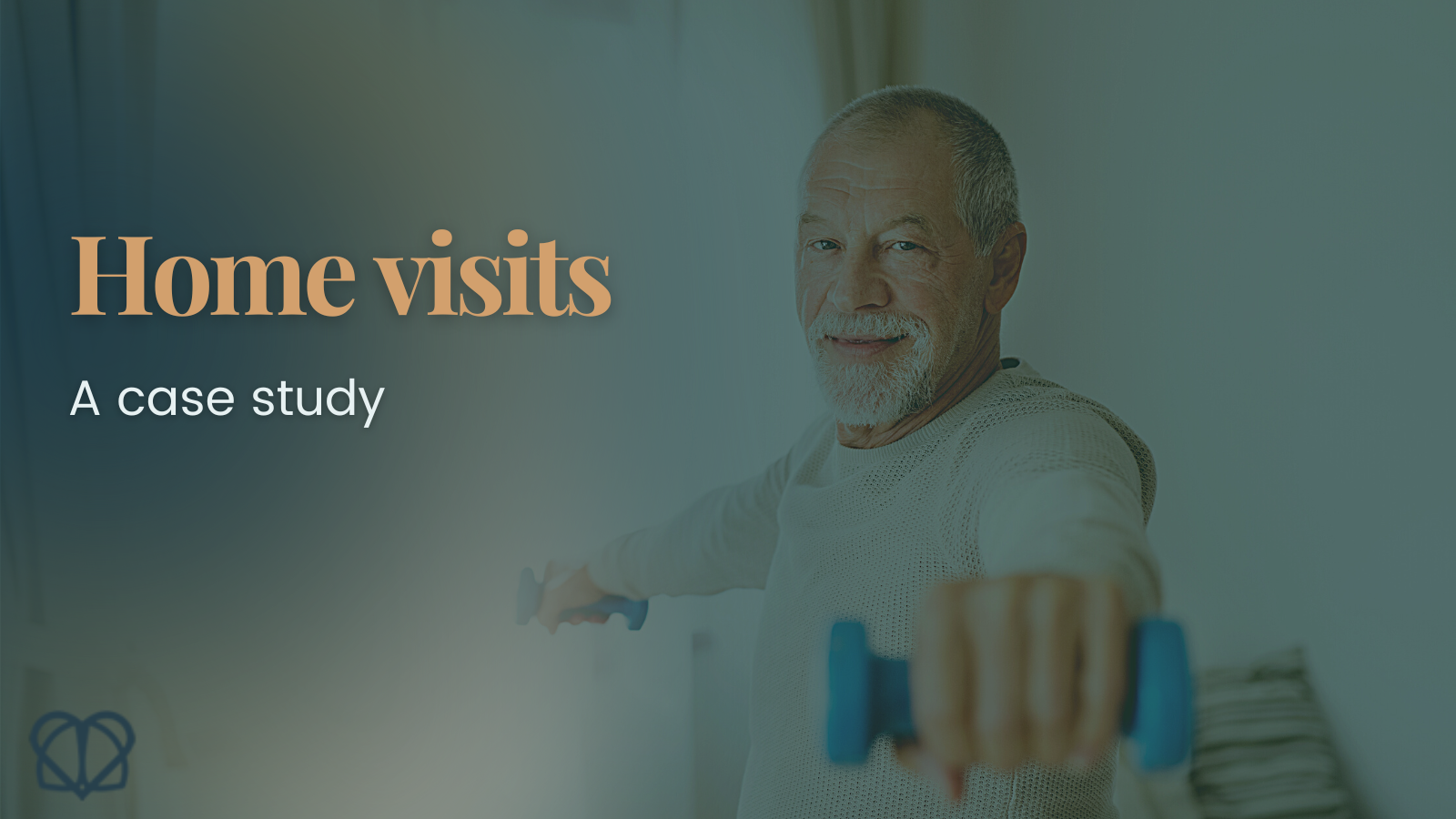We receive a number of inquiries about our respiratory physiotherapy home visits service and first time patients often ask us what to expect from a home visit. This case study of a patient we treated shows how the process works and the difference it can make to recovery when faced with debilitating symptoms.
The patient
Jane*, an architect in her late 40s was very fit and active, worked long hours as part of her professional career and enjoyed a busy life. In 2019, she suddenly and unexpectedly found herself completely debilitated after contracting pneumonia, the severity of which led to a prolonged period in hospital on maximum support in intensive care. It was some weeks before she recovered enough to return home.
Once her recovery had begun, Jane realised that she needed to pay more attention to looking after herself, slow her pace of life down a little and focus more on her health & wellbeing. She also hoped to return to running, something she had been unable to do for some time prior to her pneumonia as she had an unresolved ankle injury.
The process
Jane had been advised that respiratory physiotherapy would support her recovery and began searching for treatment online in the summer of 2019. She wasn’t well enough to travel into London and her search for the right treatment she could do in the comfort of her own home led her to Air Physiotherapy.
The treatment
We began Jane’s treatment with respiratory physiotherapy home visits,
The initial assessment consisted of a check of her lungs to ensure Jane did not have any issues with sputum retention due to the pneumonia. Following assessment, Jane was taught an individualised breathing technique which meant that she was able to keep her lungs clear and reduce the risk of further infection during recovery. We were also able to educate Jane about the signs of infection and how to pick up any problems early should they arise. Jane completed her airway clearance technique daily for the first few weeks during recovery and was able to clear her lungs effectively meaning she did not suffer any further issues with infection.
Jane had weekly sessions to build up her strength. She had suffered from weight loss and her mobility had been significantly reduced. Sessions began with floor-based exercises using light weights, focusing on her core which was very weak after being bedridden for some time. Jane slowly progressed to using the treadmill, including working on the ankle injury to strengthen the ankle and gradually undertaking more advanced exercises as she became more able.
Beyond the physical constraints Jane was experiencing post-pneumonia, there was also a significant amount of psychological support provided within the treatment. Jane had been through a traumatic experience, the seriousness of her illness had left her feeling exposed and vulnerable for the first time in her life. Our treatment helped her unpick how she was feeling and deal with psychological trauma she was experiencing. We approach our care of every patient by looking at their overall health and wellbeing – not just physically, but emotionally and psychologically too – and providing the support they need to get better.
Jane’s final appointment was in February 2022, some 18 months after we had first visited her at home. As her treatment developed she became a really high achiever which saw us almost became her personal trainer. This meant having to explore a more advanced set of training and exercises outside of the usual respiratory physiotherapy remit.
The benefit of respiratory therapy home visits
- Access to treatment that a patient may not be well enough to travel to – some patients are bedbound or barely able to walk when we first see them. Through our treatment we build up their strength, increasing the level of exercise as they become more able
- Bespoke care – personal one-to-one service designed to optimise autonomy and improve quality of life
- Trusted clinical support – guided through treatment with exercises that challenge but are all within the current ability of the patient
- Access to outstanding facilities as treatment develops – when a patient is more able, we are able to use the outstanding facilities within our clinic at UNTIL in central London, where appropriate
*the patient’s name has been changed to respect patient confidentiality





